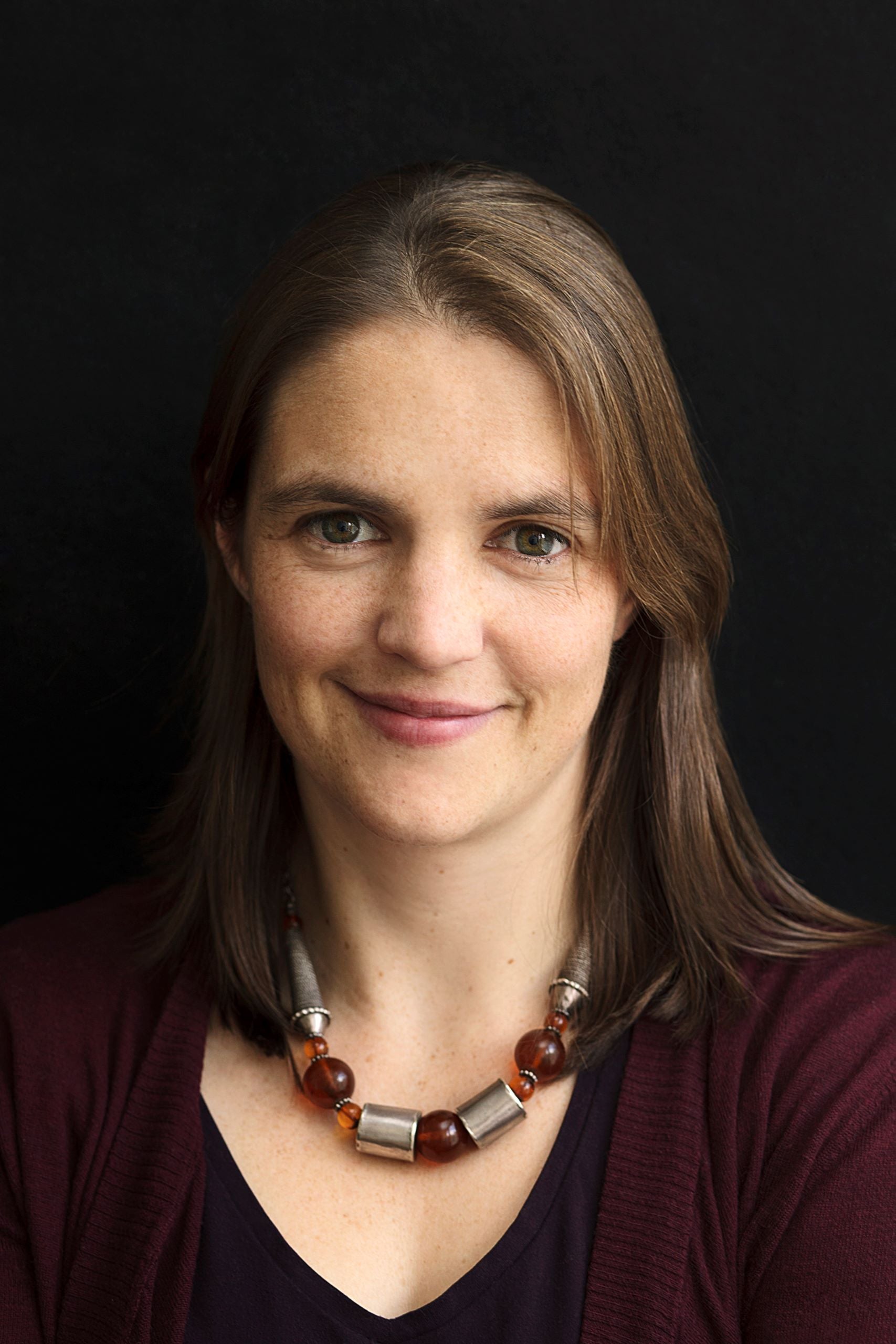Center for Communicable Disease Dynamics
The Center for Communicable Disease Dynamics works to improve methods for infectious disease modeling and statistical analysis, quantify disease and intervention impact, engage with policymakers to enhance decision-making, and train the next generation of scientists.
677 Huntington Avenue
Kresge Building, Suite 506
Boston, MA 02115
Faculty

Yonatan is a professor in the Departments of Immunology and Infectious Diseases and Epidemiology and the Director of the Center for Communicable Disease Dynamics at the Harvard T.H. Chan School of Public Health. The Grad Lab studies how we best prepare for and respond to infectious disease threats. The lab uses a combination of pathogen genomics, molecular microbiology, mathematical modeling, and epidemiological tools, and projects include studying outbreaks in collaboration with hospitals and public health institutions and the biology and epidemiology that underlies the emergence and spread of antibiotic resistance. More information on the Grad Lab can be found at the lab website.

Jeff Eaton is an Associate Professor in Epidemiology in Harvard T.H. Chan School of Public Health. He holds an Master’s degree in Statistics from the University of Washington and PhD in Infectious Disease Epidemiology from Imperial College London. His research focuses on developing new mathematical models, statistical methods, and surveillance tools to characterize HIV epidemic trends, transmission dynamics and the demographic impacts of HIV, particularly in sub-Saharan Africa. Eaton co-chairs the UNAIDS Reference Group on Estimates, Modelling and Projections, a technical advisory group that provides scientific guidance to UNAIDS and partner organizations on the data, methods, and tools used to quantify the global HIV epidemic. His team in the MRC Centre for Global Infectious Disease Analysis at Imperial College London develops software tools used annually by national HIV programmes to produce national and subnational epidemiologic estimates to guide their response to HIV, in collaboration with UNAIDS, PEPFAR, Global Fund, CDC, and other organizations. He has a longstanding interest in demographic surveillance, population cohort studies, and methods for collecting and analysing longitudinal data. Key collaborations include with the Manicaland Centre for Public Health Research in eastern Zimbabwe and the ALPHA Network of population HIV cohort studies.

Dr. Bill Hanage is a Professor of Epidemiology at Harvard T. H. Chan School of Public Health. His research and teaching focus on the epidemiology of infectious disease and the evolution of infectious agents. He received his PhD from Imperial College London. Dr. Hanage has made seminal contributions to the study of diverse pathogens, both bacteria and viruses, and has a special interest in evolution in response to interventions such as vaccination or antimicrobials. His research on the current pandemic has included modeling transmission in healthcare and the impact of vaccination in the context of variants, how fatality rates vary with age, and how the virus evolves in individual hosts. His awards include the Fleming Prize from the Microbiology Society and a young investigator award from the American Society for Microbiology. He has published more than 200 scientific articles and book chapters and is a regular contributor to popular media aiming to improve public understanding of the SARS-CoV-2 pandemic and other infectious diseases.

Nick Menzies is Associate Professor of Global Health in the Department of Global Health and Population, and part of the core faculty of the Harvard Center for Health Decision Science. Professor Menzies uses decision science and quantitative research to understand the consequences of policies to combat major infectious diseases, and help design effective disease control programs when resources are limited.
Professor Menzies combines empirical data with mathematical modeling to examine infectious disease control policy in high burden settings, currently focusing on the intersection of HIV and TB epidemics in sub-Saharan Africa and other high-burden settings.
In his empirical research Nick has worked to improved the level of evidence on the resource requirements for HIV interventions in high burden settings, allowing for better budgeting of these large programs and allowing decision-makers to weigh the advantages of different implementation approaches. Nick is currently working on a multi-country study to understand the costs, cost drivers and efficiency determinants of routine immunization services. Other applied work has addressed the costs and benefits of expanding access to HIV screening and diagnosis in high prevalence settings. Read more.

Megan Murray is an epidemiologist and an infectious disease physician with over 25 years of experience studying tuberculosis and other emerging and re-emerging infectious diseases. Dr. Murray is the Ronda Stryker and William Johnston Professor of Global Health and Social Medicine at Harvard Medical School and Professor of Epidemiology at the Harvard Chan School of Public Health. She is also the director of the Research Core in the Department of Global health and Social Medicine at Harvard Medical School.
Dr. Murray’s research focuses on host and pathogen specific determinants of TB infection, disease and treatment outcomes. Much of her research is done in collaboration with the non-governmental organization Partners in Health and its Peru-based sister organization Socios en Salud. The joint team uses bacterial and human genetic and genomic tools to identify variants of interest and to understand the mechanisms of their interactions. Read more.

Mauricio Santillana, PhD, MSc is the director of the Machine Intelligence Research Lab in the Network Science Institute. He is a Professor in the Physics and Electrical and Computer Engineering Departments at Northeastern University. Mauricio enjoys working with public health officials and clinicians in the design of decision-making support tools by leveraging Internet-based data sources such as Electronic Health Records, Bedside Monitors, Google search trends, Twitter microblogs, News Alerts, Weather, and Human Mobility.
Mauricio is a physicist and applied mathematician with expertise in mathematical modeling and scientific computing. He has worked in multiple research areas frequently analyzing big data sets to understand and predict the behavior of complex systems. His research modeling population growth patterns has informed policy makers in Mexico and Texas. His research in numerical analysis and computational fluid dynamics has been used to improve models of coastal floods, and to improve the performance of global atmospheric chemistry models. In recent years, his main interest has been to develop mathematical models to improve healthcare. Read more.

Dr. Ruanne Barnabas is a physician-scientist, Chief of the Division of Infectious Diseases at MGH, and a Professor of Medicine at HMS.
Over the last 15 years, her research has focused on interventions for HIV and STI treatment and prevention. She is particularly interested in novel approaches that increase access to services. She is the Principal Investigator of the KEN SHE Study that demonstrated high efficacy of single-dose human papillomavirus (HPV) vaccination in Kenya and contributed evidence to the World Health Organization (WHO) policy supporting single-dose vaccination globally. She has led clinical trials with companion health economic modeling to assess interventions’ potential health and economic impact. Her work aims to identify effective and scalable HIV, HPV, and infectious disease treatment and prevention strategies to increase access across diverse communities and promote equity in health.

Daniel Neafsey’s laboratory studies the evolutionary genomics of malaria parasites and mosquito vectors. Prior to becoming a faculty member at Harvard, he led a research group at the Broad Institute, where he retains a role as Associate Director of the Broad Institute’s Genomic Center for Infectious Disease. He is excited by the potential for new technology and data to turn the tide against diseases like malaria.
Neafsey’s current projects involve the application of comparative genomic and population genetic analyses to Plasmodium malaria parasites and Anopheles mosquitoes to study population structure, natural selection, and genomic factors underlying parasite and vector phenotypes that impact public health. Neafsey’s interests also include the use of pathogen polymorphism data to inform vaccine design and understand vaccine efficacy, analysis of drug resistance mechanisms and evolution, the use of clinical genotyping data to interpret disease transmission dynamics, and the development of new genomic protocols and informatics tools to address key questions in infectious disease and global health.

Molly Franke, D.Sc., is Professor of Global Health and Social Medicine at Harvard Medical School and Professor of Epidemiology at the Harvard Chan School. Trained as an epidemiologist, Dr. Franke is a global health researcher whose work applies rigorous quantitative methods to some of the world’s most intractable infectious diseases, including tuberculosis, cholera, and HIV. Her overarching goal is to reduce suffering from infectious diseases by generating actionable evidence to guide interventions and treatment strategies. Her research portfolio includes the design and implementation of studies to evaluate the effectiveness of cholera prevention and control measures, as well as the use of advanced causal inference-based methods to assess novel treatment regimens for drug-resistant tuberculosis. In parallel, she conducts research on health care delivery interventions, with a particular focus on community-engaged strategies to improve clinical and psychosocial outcomes among adolescents and young adults living with HIV.

Dr. Caroline Buckee is a Professor of Epidemiology at Harvard T.H. Chan School of Public Health. Her work is focused on understanding the mechanisms driving the spread of infectious diseases that impact the most vulnerable populations worldwide, particularly malaria. Before coming to Harvard, Dr. Buckee completed a D.Phil. at the University of Oxford, and Omidyar and Wellcome Trust fellowships at the Santa Fe Institute and the Kenya Medical Research Institute, respectively, where she analyzed malaria parasite evolution and epidemiology. Dr. Buckee’s group uses a range of mathematical models, experimental and genomic data, and “Big Data” from mobile phones and satellites to understand how human pathogens spread and may be controlled. Her work has appeared in high profile scientific journals such as Science and PNAS, as well as being featured in the popular press, including CNN, The New Scientist, Voice of America, NPR, and ABC. Dr. Buckee was featured as one of MIT Tech Review’s 35 Innovators Under 35, a CNN Top 10: Thinker, and Foreign Policy Magazine’s 100 Global Thinkers.

Starting January 1, 2026 Marc Lipsitch joined the Stanford faculty with appointments in the Department of Medicine and the Division of Infectious Diseases and Geographic Medicine, at the Stanford University School of Medicine, the Department of Biology in the School of Humanities and Sciences, and as Senior Fellow in the Freeman Spogli Institute for International Studies, affiliated with the Center for International Security and Cooperation (CISAC), where he currently holds the Michael and Barbara Berberian Professorship.
Marc Lipsitch remains an Adjunct Professor of Epidemiology at the Harvard T.H. Chan School of Public Health. He is internationally recognized as an authority on preparedness and response to epidemics and pandemics.
He became the founding Director for Science of the US CDC’s Center for Forecasting and Outbreak Analytics in 2021, where he served as Senior Advisor until 2025. In 2014, he co-founded the Cambridge Working Group, whose efforts led to a moratorium on US Government funding for research to enhance potential pandemic pathogens, and he remains active in this area of biosecurity and science policy.
Read more